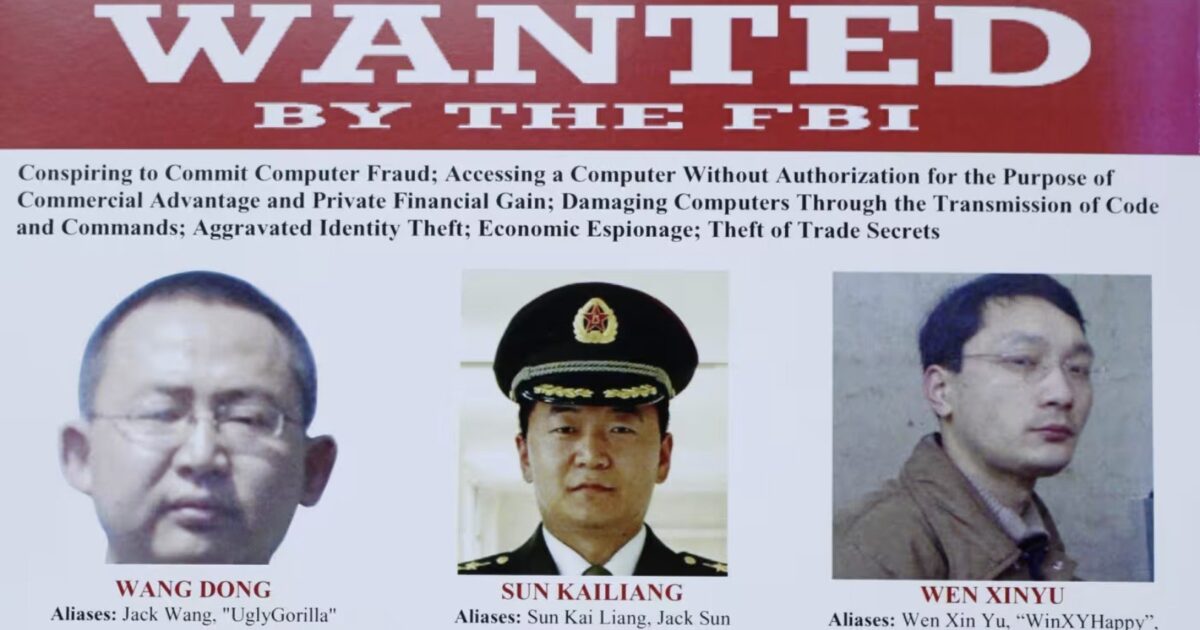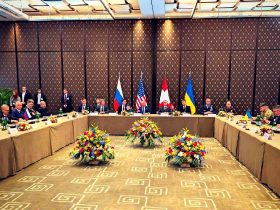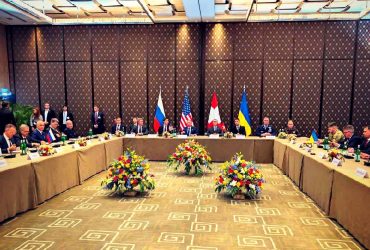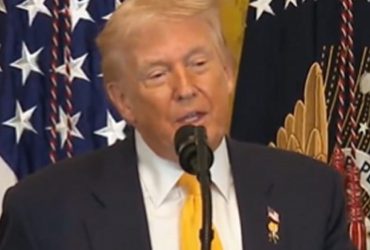Photo courtesy of the Federal Bureau of Investigation
Ji Wang, 63, of Painted Post, New York, was convicted of two counts of economic espionage, one count of theft of trade secrets, and two counts of attempted espionage and theft. He faces up to 15 years in prison for each espionage charge and 10 years for theft, with sentencing scheduled for April 15, 2026.
Wang immigrated to the United States in 1998 to work for Corning Incorporated. From 2002 to 2007, he participated in a joint Corning–DARPA project developing optical fibers for high-powered laser weapons capable of destroying drones and missiles. On July 1, 2016, just ten days after applying for China’s Thousand Talents Plan, he stole hundreds of confidential files containing technical data that could allow replication of advanced fiber lasers.
Two months later, he was accepted into the program. Between 2014 and 2017, Wang also negotiated with Chinese government entities to start a specialty fiber business in China, seeking tens of millions in investment and emphasizing the technology’s military potential, claiming it could determine “victory or defeat” in war.
Between 2021 and 2024, the U.S. government reported more than sixty Chinese Communist Party–linked espionage incidents on American soil, with roughly 80 percent of economic espionage prosecutions and 60 percent of trade secret theft cases tied to China. During President Trump’s first term, U.S. investigators exposed the vast scale of China’s theft of American technology and intellectual property.
A 2018 report by the United States Trade Representative (USTR) documented systematic abuses, forced technology transfers, state-sponsored acquisitions, and cyber intrusions, costing the United States hundreds of billions of dollars annually.
The FBI confirmed that about 90 percent of economic espionage cases were linked to Beijing, and by 2020 nearly half of its 5,000 active counterintelligence investigations involved China. FBI Director Christopher Wray described Chinese espionage as “the greatest long-term threat” to America’s security and innovation.
To confront this danger, the Department of Justice launched the China Initiative in late 2018 to combat espionage, technology theft, and unregistered foreign agents. Yet President Biden terminated the program in 2022 after critics alleged it promoted racial bias. With the Trump-era counterespionage program dismantled, Chinese espionage continued through 2024 and 2025, spanning the military, technology, government, and private sectors.
The Chinese Communist Party (CCP) has even infiltrated the US military. Two Navy sailors were convicted for passing classified information to Beijing. Petty Officer Wenheng “Thomas” Zhao, 26, was sentenced in January 2024 to 27 months in prison for conspiring with a Chinese intelligence officer and sharing radar diagrams, training schedules, and operational details in exchange for bribes.
In August 2025, Jinchao “Patrick” Wei, 25, stationed aboard the USS Essex, was convicted on six counts including espionage and conspiracy to commit espionage after selling U.S. military secrets to China. He faces a possible life sentence.
In the technology and government sectors, several high-profile cases revealed Chinese infiltration efforts. Linwei “Leon” Ding, a Google software engineer, was indicted in March 2024 for stealing proprietary AI data and later charged with multiple counts of economic espionage and trade secret theft for transferring confidential files to PRC-based AI companies.
In January 2025, former Federal Reserve senior advisor John Harold Rogers was arrested for conspiring to steal economic data for China. Around the same time, Linda Sun, former deputy chief of staff to New York Governor Kathy Hochul, was charged with acting as an undisclosed foreign agent in a series of indictments spanning late 2024 to mid-2025.
Cyber-espionage operations also escalated. In March 2025, prosecutors charged Chinese nationals Yin Kecheng and Zhou Shuai for a decade-long campaign targeting defense contractors and U.S. agencies, including the Treasury Department. That same month, the DOJ indicted twelve more Chinese nationals, two Ministry of Public Security officers (the Chinse equivalent of the CIA), eight i-Soon employees, and two APT27 members, for global computer intrusions affecting federal and state systems.
Other cases showed a broad range of tactics. In August 2024, Shujun Wang, 75, was convicted for infiltrating a New York pro-democracy organization while secretly reporting to Chinese intelligence. In November 2024, Ping Li, 59, was sentenced to four years for acting as an unregistered agent of China’s Ministry of State Security and providing information on his former employers, Verizon and Infosys. In June 2025, Yuance Chen and Liren “Ryan” Lai were arrested for facilitating a cash “dead drop” related to U.S. national security.
And in September 2025, State Department employee Michael Schena was sentenced to four years for transmitting classified documents to individuals he believed were Chinese agents.
Together, these cases highlight Beijing’s systematic strategy of recruiting through talent programs, targeting the defense and technology sectors, embedding operatives within U.S. institutions, and combining traditional espionage with advanced cyber operations.
The Trump administration was both prudent and fully justified in cutting visas for Chinese researchers and closely scrutinizing Chinese nationals with ties to the Chinese Communist Party or the People’s Liberation Army.
The post Scientist Convicted of Spying for China – Most Recent in Troubling Trend of Chinese Espionage appeared first on The Gateway Pundit.










